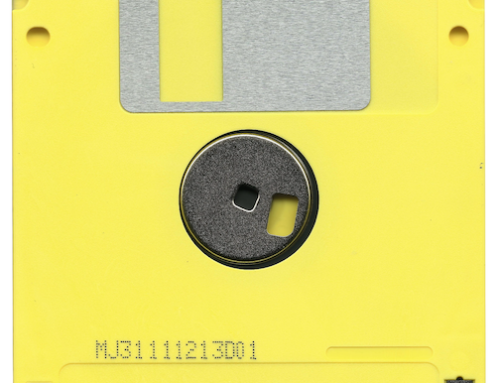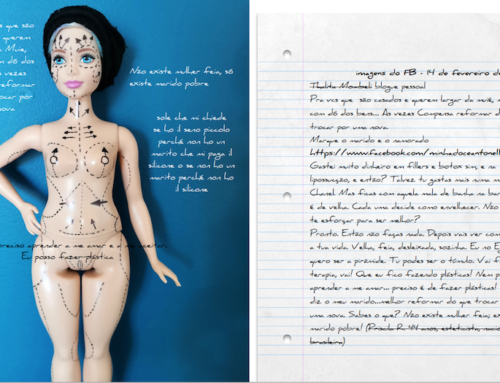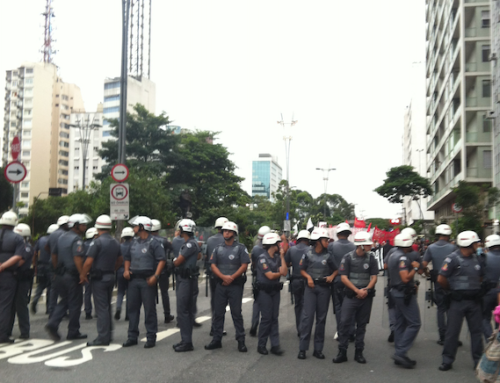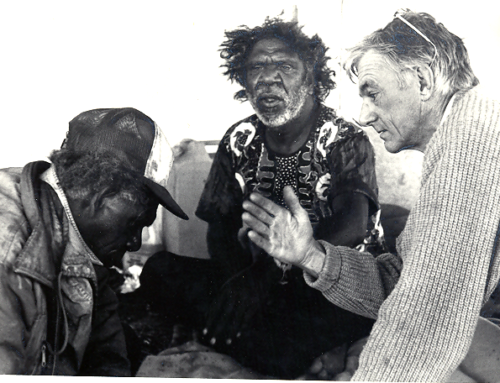When I flew from the US to Russia, from Chicago to Vladivostok, the COVID-19 pandemic was not yet a pandemic. From the news, Russia seemed to be doing better than the US. But soon after I arrived my university officially banned all university-sponsored travel, and then in-person research. Quickly, the potentials of completing dissertation fieldwork seemed to close and decisions had to be made. My notes offered a space to push forward. They were more than a form of data collection and synthesis. They became proof that I was pushing forward despite the COVID-19 pandemic, a testament to myself that many research possibilities remained, proof that I could fulfill the role of researcher. My fieldnotes came to provide insight into my topic and into myself in a way that differed dramatically from previous introspection.
Foucault writes that through “hupomnemata,” a form of Greco-Roman writing practice that includes everything from individual notebooks and account books to public registers, “the writer constitutes his own identity through this recollection of things said” (1994, 213). Hupomnemata “constituted a material record of things read, heard, or thought, thus offering them up as a kind of accumulated treasure for subsequent rereading and meditation” (209). Beyond reflection, for Foucault, hupomnemata functions as a process of incorporating what was seen and heard selectively into the self, a record of both the self and alterations to the self because of experience and knowledge gained. In showing this, Foucault demonstrates that our selection of what is recorded and our choice of how relations between them exist work to form us as subjects as well as create the issue at hand. In other words, in writing, we do not perfectly copy and internalize what was written, observed, and thought as our own perspective. Rather, it is transformed, and this transformation forms our specific subjectivities, which nonetheless bear a resemblance to what produced them while remaining unique. Likewise, the issue being written about is transformed with us. It is also important to note that Foucault writes of how hupomnemata were used as the basis for the “drafting of more systematic treatises” and exchanged when “[one] at that moment does not really have the time to compose a treatise in the proper form” (1994: 210).
I think of fieldnotes similarly: both are at times practically and discursively used to write other texts. Our writing—whether in the form of notes or ethnography—deeply reflects the intersection of ourselves with our interlocutors’ selves, grounded in our research topic. Indeed, in this process of forging ourselves, producing and unraveling questions, and recording the intersections of our concerns with those of our interlocutors, our research can become a true coeval (Fabian 2014) meeting ground between our interlocutors and ourselves.
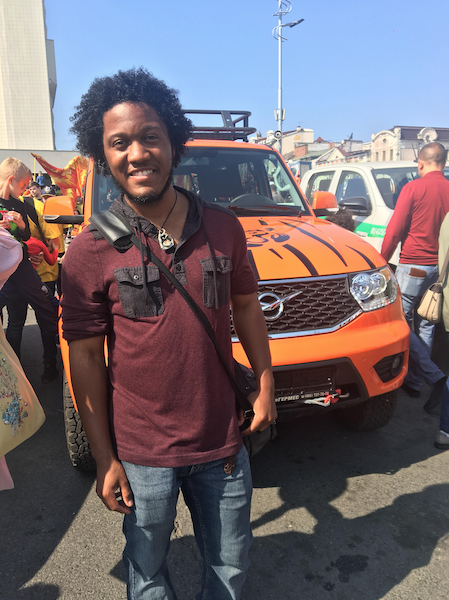
Kamal Kariem. Photo credit: Kamal Kariem.
On May 31st, 2020: [To E,] I said that things are getting worse in the US, and that already over 100,000 people have died of the virus. [E] took this as a moment to compare…she said that some people think that the region also experienced the virus earlier than January. [Recalling] that there were more cases of ‘pneumonia’ than usual…it’s interesting that I am once again hearing this theory [of the region having already recovered from COVID-19].In the early days of the pandemic, my notes were filled almost exclusively with references to COVID-19. Indeed, at times all I could do was trace the impacts of COVID-19 (at others, I was too paralyzed by COVID-induced stress and anxiety to write). But the act of writing helped to focus my mind. It enabled me to externalize my concerns over both myself and my loved ones at home. It also aided in knowing what people around me—both interlocutors and otherwise—were grappling with. I checked in with interlocutors and friends via text and in-person when distancing was possible. In the end, writing notes allowed me to record the differential impacts of and media coverage surrounding COVID-19 in Russia and to compare my interlocutors’ reactions to it. Some were taking certain measures but were not afraid of it, reasoning that COVID-19 was like a worrisome cold or flu. Many others in the city had no concern over COVID-19 at all. In the end, writing notes became a space for recording and processing the differing rhetoric and reactions to COVID-19 between Russia and the US.
My notes remind me that COVID-19 actively impacted my own decisions in and engagement with the field, as well as the decisions of many of my interlocutors. COVID-19 was more than a background for my research to be described about only once or twice. It made me consider how much I linked fieldwork to “being there” (Borneman and Hammoudi 2009), and how conducting research during a pandemic was rife with potential dangers (Kariem 2020). It made me question what the “field” could be during a pandemic. In particular, I thought a lot about my obligations to the communities I am in, such as with interlocutors, family, friends, as “being there” not only meant physical engagement but distanced action.
On September 13th, 2020: …I am a Black man in Russia attempting to research a topic relating to Indigenous communities…I am afraid that my Blackness will be erased by my Americanness in the eyes of my interlocutors…
As a Black anthropologist, I constantly worried about how I was viewed and interpreted. At sporadic points, my notes reflect this worry and the ways that some were able to see my identity as manifold and others were not. Our identities matter in the process of research. Note-taking helped me to externalize some of these fears to come to know them and name them. They were a part of me and came into my research in forms ranging from the euphoria of mutual recognition and attempts at solidarity between marginalized groups to the solitude I felt when potential interlocutors viewed all US citizens as undifferentiated and equally worthy of distrust. Writing helped me to push forward despite the latter. It catapulted me forward in the case of the previous. Our identities pre-exist our writing; however, only through fieldwork and notes do we come to see which identities bear a particular salience for our research. In my case, I am a Black man with specific sensitivities. However, for some of my interlocutors, I was only American. My Blackness did not truly matter for them. But for others, my Blackness became the space from which we could meet on a more even level despite me being a researcher.
The notes that I have shared do not provide much direct insight into my topic. They illustrate the context and conundrums of my fieldwork and how fieldwork itself can be difficult, even burdensome. This is intentional. While targeted to our research, notes should not narrowly focus on our research and its purview. Meeting with friends and interlocutors, our conversations often slipped to being about the pandemic in one way or another. We should record as much as we can, from pandemics to freakish bad weather, and from random personal thoughts to strangers’ comments. Details such as these help us to better write and be in the field. They help us better understand the place where we are working, the times, and what our presence and research produces with/in other people. For me, worrying about my positionality in the field and how I might be (mis)interpreted allowed me to see spaces of uncertainty and mistrust during fieldwork and redoubled my conviction to “get it right,” to conduct research that was not only conceptually good but relevant to both the space and the people kind enough to share their time and energy with me.
Pandemics close and open doors. I was well-positioned to conduct research during the pandemic by extension of being there already. My notes reflect this; they illustrate ways that we can attempt remote research—interpersonal, archival, and otherwise—whether you are nearby or far away from your fieldsite. Our ethnographic practice must reflect what we saw, took part in, heard, or read in context. These observations and experiences can never be objective, however; without an honest reflection on our identities and subjectivities, this data remains partial, as do the insights gleaned from it. Only reporting “objective” data relating to our research questions obscures the fact that our multiple identities impact who speaks to us, how they speak to us, why they speak to us, or do not. In other words, we must not only be reflexive about how our identities impact our research but make these identities explicit in our note-taking as a part of our ethnographic practice because these add dimension to our experiences in the field on numerous levels and improve our subsequent ethnographic writing.
From my own fieldwork, some interlocutors reduced me to only an undifferentiated US citizen, while others saw me as a Black man, who is marginalized in the US and who could be potentially marginalized in Russia too. Believing the previous, at times, the previous regarded me with suspicion and at others tried to impress on me that I should not look down on Russia or negatively view the Soviet Union as “all Americans” do. However, the latter checked in on me during my time in Russia and worried about me, and in turn, I was able to have more frank conversations with them revolving around their lives and marginalization because I too understood some of what they may have faced or continue to face. In both cases, we were only able to mutually exist and interact not only as “researcher” with “interlocutor,” but as people grappling with difference, trying to ensure that what we thought was important was not overlooked or erased, and hoping that the person before us would be receptive.
It is subjective and interpersonal elements of ethnographic research, such as I just outlined here, that shape our data collection and fuel our note-taking, thereby grounding our future texts. If we only record in our notes what we view as “scientifically relevant” because we are conducting “research” in the strictest sense of the term, we lose the ability to comprehend the experiences of our interlocutors and acknowledge our coevalness with them. Our notes, thus, not only illustrate the lives of our interlocutors and our academic questions, but also ourselves—our concerns, identities, fears, and lives—allowing for the transformation of our research topics and all involved.
Ethnography is the overlapping of these two sides—the lives of our interlocutors and ourselves—as we transition from notes to texts. As Borneman and Hammoudi assert of fieldwork encounters, our notes must be “modes of ethical engagement wherein the ethnographer is arrested in the act of perception” (2009, 19). As modes of ethical engagement and fieldwork, fieldnotes are “the registering of sensory impressions in a (temporal) process of mutual subject-discovery and critique, an engagement with persons, groups, and scenes that takes into account the dynamics of our interactions as well as the differences between our locations and those of our interlocutors” (2009, 19; emphasis mine). My notes show a grappling with this “mutual subject-discovery” and “tak[ing] account [of] the dynamics of [my] interactions [with my interlocutors].” In struggling with these, I learned that my identities were integral to how people understood me, and that they selectively picked which ones mattered.
As much as they functioned as proof that I could still do research, my notes equally became a way of understanding how my identities came into play in my research and were also altered by it. They showed me that if I did not forge myself and my topic, others—other people, external circumstances—would. So I wrote.
References
Borneman, John and Abdellah Hammoudi. 2009. Being There: The Fieldwork Encounter and the Making of Truth. Berkeley: University of California Press.
Fabian, Johannes and Matti Bunzl. 2014. Time and the Other: How Anthropology Makes its Object. New York: Columbia University Press.
Foucault, Michel and Paul Rabinow. 1994. Ethics: Subjectivity and Truth. New York: New Press.
Kariem, Kamal. 2020. “A Calm Panic: Thoughts on Beginning Fieldwork in the Russian Far East (RFE) during the COVID-19 Epidemic.” In “Pandemic Diaries”, Gabriela Manley, Bryan M Dougan, and Carole McGranahan, eds., American Ethnologist website, March 27, 2020.
Kamal Kariem is a PhD Candidate at Princeton University and Gaius Charles Bolin Fellow at Williams College. His research interests lie at the intersections of Indigeneity, protected areas, Russia, and post-Socialism. Kamal grapples with how conservation projects and nature protection thinking (from the past and present) do more than protect biodiversity but also reconfigure social relations, notions of self and tradition, and expand per se beyond conservation.
Cite As: Kariem, Kamal. 2022. “Between Notes and Diaries: Ethnographic Notes, Coevalness, and Positionality” In “Taking Note: Complexities and Ambiguities in Writing Ethnographic Fieldnotes,” edited by Magdalena Zegarra Chiappori and Verónica Sousa, American Ethnologist website, 26 August 2022, [https://americanethnologist.org/features/collections/taking-note-complexities-and-ambiguities-in-writing-ethnographic-fieldnotes/between-notes-and-diaries-ethnographic-notes-coevalness-and-positionality]
